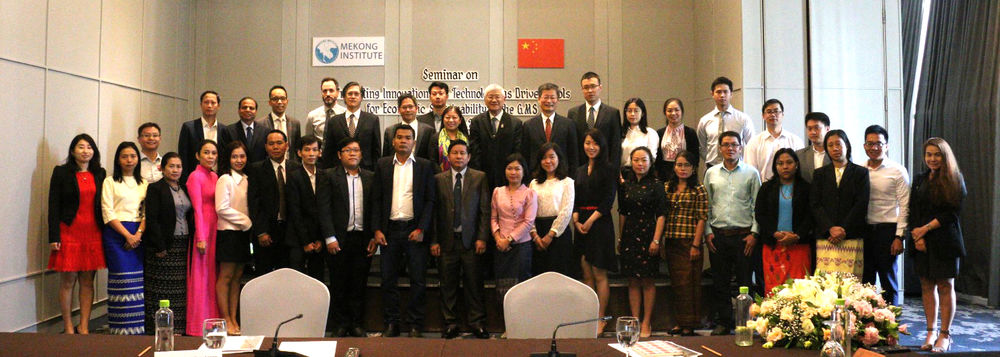Mekong Institute, in collaboration with the Government of China, held a seminar on Promoting Innovation and Technology as Driven Tools for Economic Sustainability in the GMS last November 28, 2018 in Bangkok, Thailand.
The one-day seminar featured interactive sessions and dialogues among policymakers, innovators, technology experts and producers, academicians and representatives from civil society and non-government organizations. Discussions centered on technological interventions, institutional innovations, and alternative approaches to shaping the innovation process, ultimately aimed at achieving sustainable development in the region.
“Innovation is a shared priority as reflected in the National Strategic Plans of the six GMS countries,” says Dr. Watcharas Leelawath, Executive Director, Mekong Institute. “In order for our countries to advance to the next level, it requires laying a good, solid foundation – an enabling environment wherein sound policies and regulations combine physical capital and human capital developments.” Through innovation matching and knowledge exchange, Dr. Leelawath hopes the seminar generates strategic ideas and encourages development collaborations geared toward harnessing a culture of innovation.
He further emphasized innovation and technology as instrumental to transforming economic growth and development. “Since majority of livelihoods in the GMS depend on agriculture, new technologies can lead to enhanced productivity and competitiveness, thereby improving economic well-being. This is just one example of how innovation can help leverage sustainable and inclusive development in the region,” he explains.
Likewise, panelists and experts echoed the direct link between innovative and technological capacities and national competitiveness. A common denominator among all speakers was the importance of understanding the multidimensional issues and challenges, as well as contextualizing corresponding solutions and strategies. By dissecting its dynamics, gaps and challenges, trends and good practices, the seminar steered ideas and interactions across different sectors that can help contribute to the analysis and assessment, and subsequently, adoption of innovative technologies for sustainable development.
Concluding on a positive note, Mr. Sudam Pawar, Director, Innovation and Technological Connectivity Department of MI, encouraged all participants to facilitate information sharing that can help the GMS countries improve their innovative capacities through benchmarking practices, sharing strengths, and supporting weaknesses.
View and download photos of the event: https://goo.gl/YqXbpx








